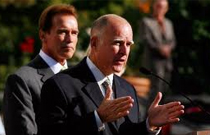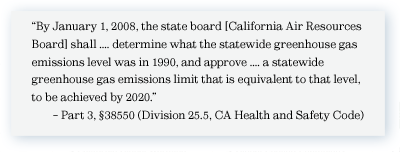Center for Energy Efficiency and Renewable Technologies
Center for Energy Efficiency and Renewable Technologies
Providing global warming solutions for California and the West.

Join CEERT Email Newsletter
Advocacy at the California Air Resources Board (CARB)

California’s landmark Global Warming Solutions Act of 2006 (AB 32) requires close collaboration by the Air Resources Board, Public Utilities Commission, Energy Commission, and Independent System Operator to implement the reduction of greenhouse-gas (GHG) emissions in order to obtain 100% of the state’s electricity from zero-carbon sources by 2045. CEERT’s Climate Program works to strengthen CARB’s GHG Scoping Plan and to lower the current target for GHG emissions.
Recent Developments:
CEERT graduate fellow Mark Hanin reports that the CARB Research Steering Committee (RSC) is accepting nominations for four new RSC members until February 12, and applications until March 4.
Mark has attended monthly calls of the CARB Scoping Plan Working Group, CARB’s 2025 Mobile Source Strategy webinar, a joint Board meeting in September with the Environmental Justice Advisory Committee (EJAC) to discuss its recommendations for the Low Carbon Fuel Standard (LCFS) Regulation Updates, and a separate board meeting on the LCFS.
Goals of CARB’s 2025 Mobile Source Strategy include a 65% decrease in NOx emissions by 2050 and a 52% decrease in particulate emissions by 2050. CARB expects to host multiple webinars and release multiple drafts of the Mobile Source Strategy, culminating in a board hearing on the matter in winter 2025, before submitting a final version to the legislature. CARB aims to use the Strategy to inform the transportation policies of its future Climate Change Scoping Plans.
In November CARB held a joint board meeting with both the California Transportation Commission and the California Department of Housing and Community Development to discuss the Climate Action Plan for Transportation Infrastructure and its implementation. They considered investments in light-, medium-, and heavy-duty zero-emission vehicle infrastructure and development of a zero-emission freight transportation system.
Mark also reports that Governor Newsom has appointed Cliff Rechtschaffen to the CARB Board.
Resources:
The Role of Technology in Climate Change
(EPA, Frank Princiotta Dec. 4, 2007)



